Australia
Latest
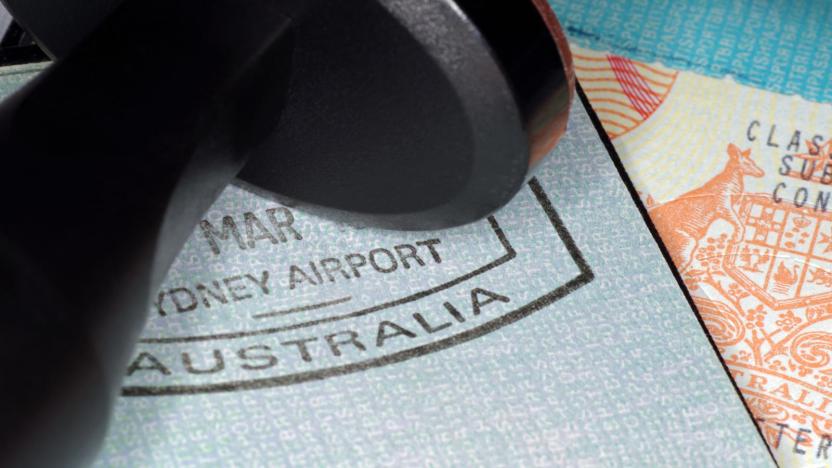
Automated English visa test struggles to understand English
An Irish veterinarian's application for an Australian visa has been rejected after she failed to pass an automated English proficiency test, despite completing it in her native language of... English. Louise Kennedy, who has two degrees (both obtained in English), wanted to apply for permanent residency in the country on the grounds of her job, which is classed as a shortage profession. Despite acing the reading and writing parts of the test she didn't score highly enough on oral fluency, as it seems the machines couldn't understand her accent. The Pearson Test of English (PTE) Academic is an automated system that asks applicants a number of questions and records their vocal responses which are analyzed and scored. The Australian government demands a score of at least 79 points. Kennedy scored 74.

Apple and Google ditch shady trading apps with Australia's help
It's no secret that Google and even Apple have an abundance of sketchy applications on their app stores. Some of those called binary options trading apps have alarmed the Australian Securities & Investments Commission (ASIC) so much that it helped the tech titans remove over 330 of them. According to Bloomberg, the regulator staged an intervention after getting numerous cases of fraud filed against the apps' operators, who turned out to be unlicensed. ASIC said it managed to get Apple to remove the fraudulent apps from its stores worldwide, but it didn't specify whether Google deleted them from the Australian store only.

Australian ‘budget bot’ wins Amazon robot challenge
An inexpensive robot has triumphed over its more sophisticated competition to win Amazon's annual Robotics Challenge. 'Cartman', a robot designed by the Australian Center for Robotic Vision (ACRV), was built from scratch for a fraction of the cost of other competing robots, and was even held together in places by cable ties. This year's winner -- which netted its creators the AU$80,000 ($63,770) cash prize -- stood out from the competition because of its gantry-like design. Instead of a robotic arm, Cartman functions via a sliding mechanism that picks products from above, moving on three axes. At its end is a rotating gripper, which uses a suction cup or two-finger grip to grab the item. The parts for the robot were cheap by the standards of typical industrial robots, costing under AU$30,000 ($23,913).

Australia's first vinyl factory in 30 years will open next year
Thanks to new production technology and the support of big companies like Sony, vinyl is hot these days. Trent Reznor is releasing his Quake score for LP, the Contra soundtrack is available as a record at Comic-Con this year, and Blu-ray versions of Deadpool and Logan come with their own vinyl counterparts. Now there's a new pressing plant set to open in Melbourne, making it the first modern record press in Australia in 30 years.

Can an app stop you from drinking on a work night?
A new app, likened to a "nagging cyberparent," has been designed to help drinkers moderate their boozing. The snappily-named Mobile Intervention for Drinking in Young People (MIDY) pushes notifications to your phone during your nights out. So, as you eye the delights nestled behind the bar, you'll be asked questions like "Do you have work tomorrow?" and "What time are you going home?" Of course, party animals can choose to simply ignore their phones. But the app's creators, from Australia's Victoria University, say MIDY has been well-received. A pilot program saw an 89 percent response rate to the app's hourly-communication, and now the researchers are about to embark on a two-year project involving 300 students.

US and Australia finish a key round of hypersonic missile tests
The US and its allies are determined to be first out of the gate with hypersonic weapons, and they've just taken a big stride forward in that regard... not that they're saying much about it. Both the US and Australia have confirmed that they recently completed a series of mysterious hypersonic missile tests. All the countries will say is that the flights were successful, and that they represented "significant milestones" in testing everything from the design assembly to the control mechanisms. They won't even say which vehicles were used or how quickly they traveled, although past tests have usually relied on Terrier Orion rockets (above) and have reached speeds as high as Mach 8.
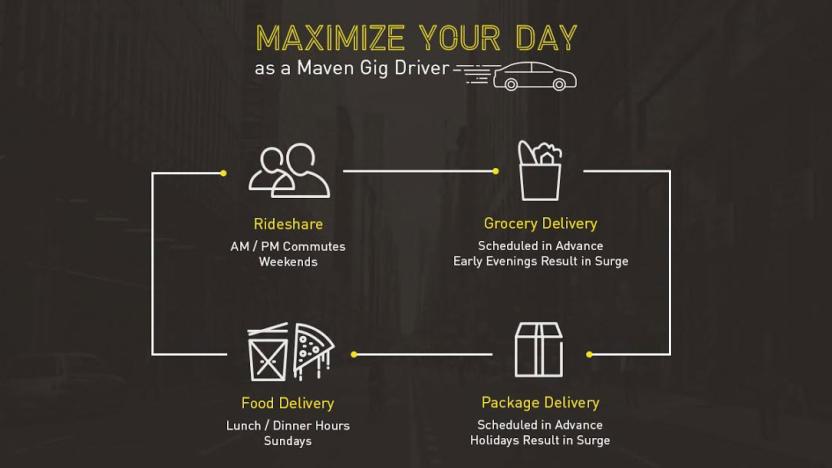
GM is renting cars to Uber drivers in Australia
GM is expanding the presence of its Zipcar-style service Maven in Australia. The company has begun testing Maven Gig in Sydney through a pilot program with Uber a few months after it started trialing the main Maven service in Melbourne. Unlike the primary service itself that offers the general public vehicles for rent, Maven Gig was designed to rent out GM cars to people doing freelance gigs, such as driving for ride-hailing companies and package, food or grocery delivery. For now, the automaker is focusing on entering leasing agreements with those who'd like to make money on the side driving for Uber.
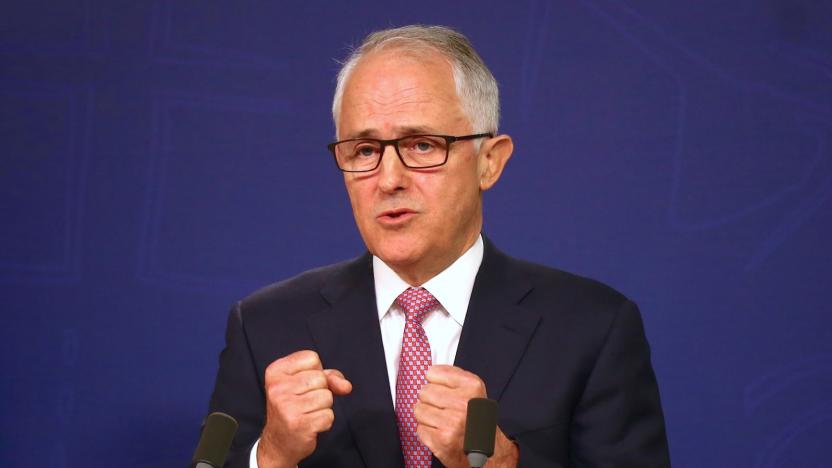
Australian bill would make tech companies decrypt user messages
Weeks ago, the Australian government introduced a new strategy at the Five Eyes security conference to combat terrorism: Force tech titans like Google and Facebook to decrypt communications from users suspected to be extremists or other criminals. It seems they're moving ahead with it on their own turf, as the Australian government proposed a new bill today that would grant Australia's intelligence agencies this authority to compel tech companies to hand user messages over to law enforcement.

The endangered Great Barrier Reef is not in danger, says UNESCO
The United Nations Educational, Scientific and Cultural Organization (UNESCO) has voted not to add Australia's Great Barrier Reef to its list of sites in danger. The group's baffling decision occurred despite the reef's currently perilous state, where back-to-back coral bleaching events threaten more than two-thirds of its length. Even worse, is that UNESCO published a paper just last month, saying that if nothing was done, the Reef would die in a century. The cause of this spectacular act of cognitive dissonance is political, thanks to hard lobbying from Australia's government.

Tesla is building world’s largest backup battery in Australia
After blackouts left 1.7 million residents without electricity, Elon Musk famously guaranteed that Tesla could supply 100 megawatts of battery storage in 100 days. The company has announced it will do just that by installing a Powerpack battery storage system that can run over 30,000 homes. The 100-megawatt project "will be the highest power battery system in the world by a factor of three," tweeted CEO Elon Musk. It will back up the 315 megawatt Hornsdale Wind Farm, charging during low energy usage and providing electricity for peak hours.
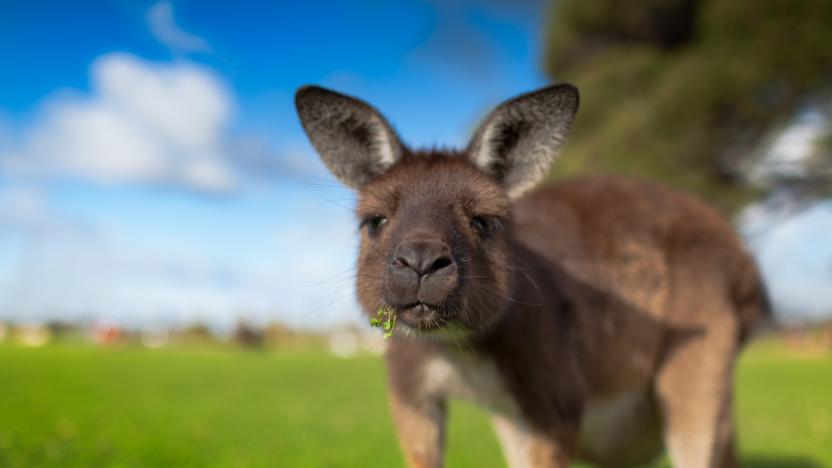
Volvo’s self-driving cars are thrown off by kangaroos
Volvo, like seemingly every other company, has been working on their autonomous vehicle technology and it has run into an interesting problem. While testing its cars in Australia, the company found that kangaroos were both a nuisance and very confusing to its cars.

Pandora is shutting down in New Zealand and Australia
While Pandora got a nice infusion of cash from SiriusXM a few weeks ago, there's bad news for the streaming services' users down-under. The company just announced that its co-founder and CEO Tim Westergren is stepping down and, according to Billboard, Pandora is ending its service in the only two non-US markets it currently operates in: Australia and New Zealand.

Listening to starlight: Our ongoing search for alien intelligence
Six hours a day, seven days a week, for four straight months. That's how long radio astronomer Frank D. Drake pointed the 26-meter telescope at the National Radio Astronomy Observatory (NRAO) research facility in Green Bank, West Virginia, toward the heavens, looking for signs of intelligent life beyond Earth. He dubbed his efforts Project Ozma, in honor of the Queen of Oz from L. Frank Baum's famed children's book series.
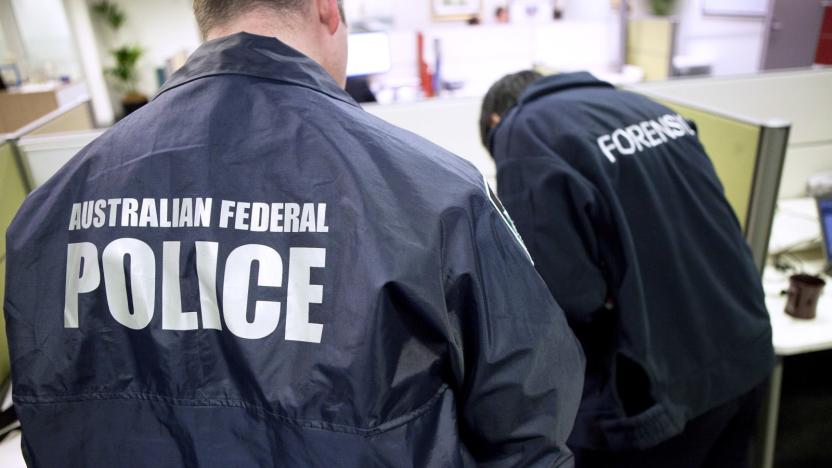
Australian cops broke data law while checking a journalist's calls
There's a good reason why privacy and civil rights advocates object to far-reaching data collection laws: even if most police and spies are well-meaning, it's all too easy for others to abuse their power or make mistakes. And the Australian Federal Police just provided a good example of this problem. The law enforcement agency has admitted that it violated Australia's Telecommunications Interception Act by accessing the data of an unnamed journalist without the necessary special warrant. Officials say the spying was due to "human error" and have mended their ways (including deleting their copy of the data), but this kind of faux pas wouldn't have even been possible if it weren't for the existence of the TIA.
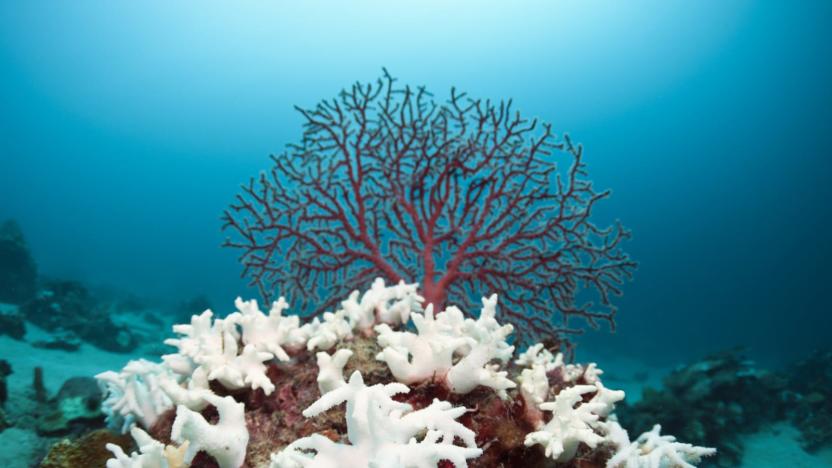
Artificially bright clouds might save the Great Barrier Reef
Australia's Great Barrier Reef is dying due to changes in ocean temperature, and conventional attempts to save it (such as improving water quality or limiting fishing) haven't panned out. However, scientists might have an unusual approach that works: tweaking the clouds above the reef. They're investigating the possibility of lowering the ocean temperature by artificially brightening clouds, increasing their ability to reflect heat away from the sea below. It's not as far fetched a concept as it sounds.

Australian regulator sues Apple over phone-bricking 'Error 53'
When iPhone owners hoping for a cheap screen repair started getting the notorious, phone-bricking Error 53 message last year, the company claimed it was a security measure meant to protect customers from potentially malicious third-party Touch ID sensors. An iOS patch eventually alleviated bricking issues, but some consumer rights advocates still aren't pleased with Apple's lack of transparency. This week, the Australian Competition and Consumer Commission announced it will be taking legal action against Apple for allegedly making "false, misleading, or deceptive representations about consumers' rights" under Australian law.
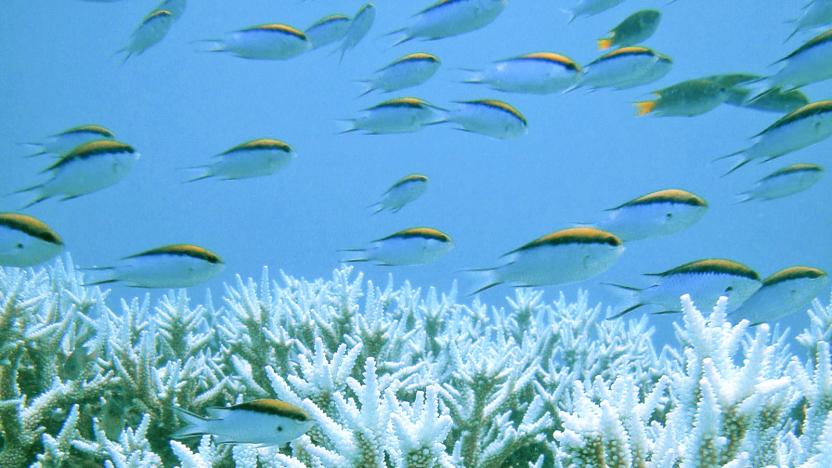
The Great Barrier Reef's fate rests on slowing global warming
There's no question that the Great Barrier Reef and other coral fields are hurting as a result of rising water temperatures. But is there a relatively straightforward way to save them, or do they require more drastic action? Unfortunately, it's not looking good. Researchers have found that typical efforts to fight coral bleaching, such as improving the water quality or tightening fishing controls, haven't helped much at all. Whether an area was immaculate or dirty, it was just as susceptible to damage. The four large-scale bleaching events in the past two decades were the result of increased water heat -- that is, climate.
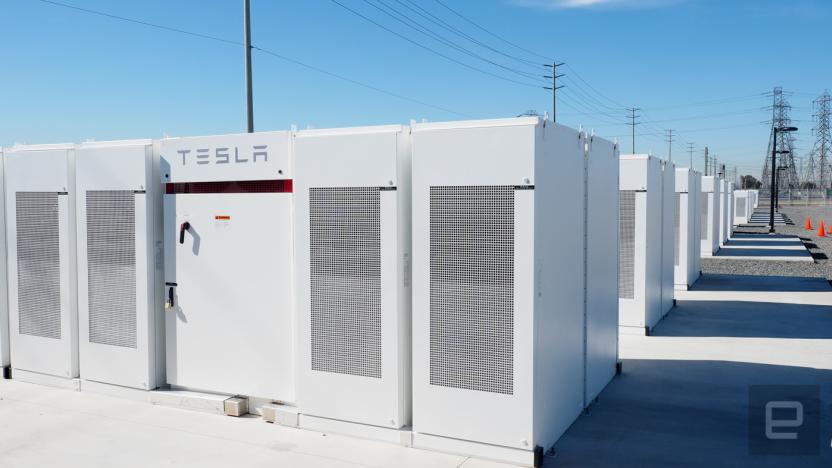
Tesla pledges to fix Australian state's power woes
Lyndon Rive, co-founder of Solar City and head of Tesla's energy division, believes that his company could fix an Australian state's energy woes in just 100 days. Rive was talking to Australia's Financial Review, claiming that Tesla could build between 100-300MWh of battery storage in that short a time. It's a bet that his cousin (and boss) Elon Musk was eager to take up, later tweeting that Tesla would do the work for free if it missed that deadline.
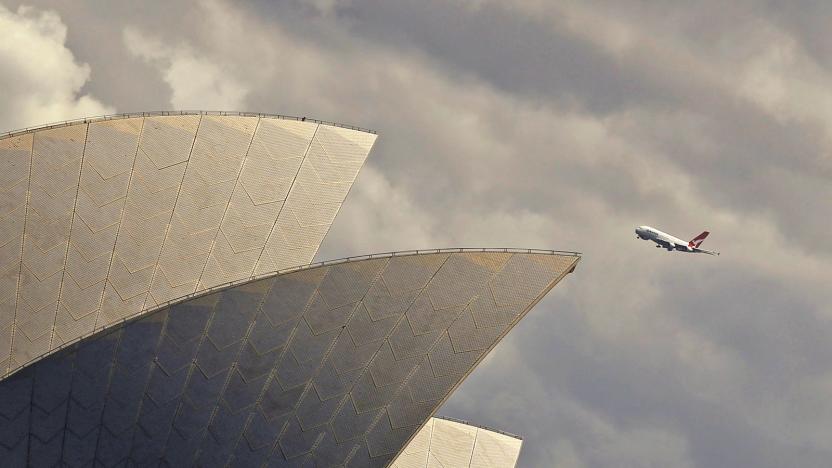
Facial recognition will replace passports in Australia
Australia has started implementing biometric facial, iris and fingerprint recognition in airports, allowing passengers to go through without showing a passport or even talking to anyone. The "Seamless Traveler" project is aimed at creating a "fast, seamless self-processing experience for up to 90 percent of travelers," so that border control can focus on high-risk passengers. The handy, but invasive-sounding plan would allow international travelers to "literally just walk out like at a domestic airport," security analyst John Coyne told Australia's Sydney Morning Herald.
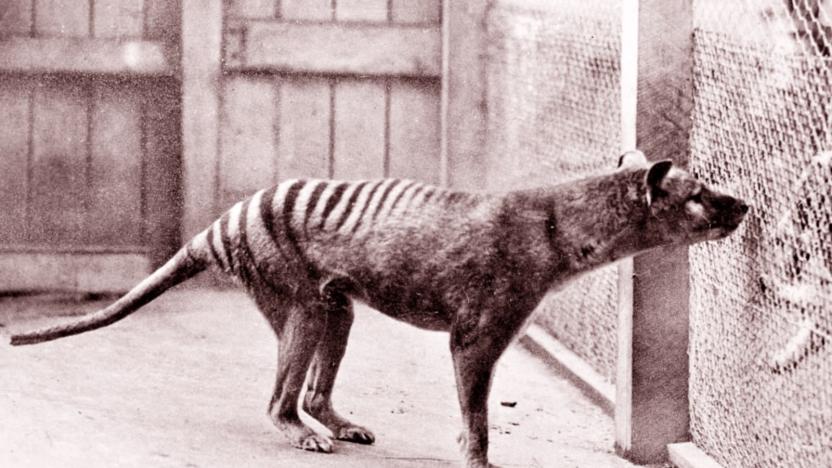
Brain scans shed light on an extinct species
It's not exactly easy to study the Tasmanian tiger. The marsupial has been extinct for over 80 years, and it wasn't given much scientific attention when it was alive -- settlers saw it as a threat to their livestock, not a curiosity. However, that isn't about to stop scientists from learning more about the sadly neglected species. Researchers have scanned two preserved Tasmanian tiger brains and discovered that the creatures were considerably more intelligent than many thought. While their brains were similar to those of Tasmanian devils, their larger frontal lobes suggest they were better at planning and making decisions. That backs the belief that they were hunters, not scavengers like their genetic cousins.








